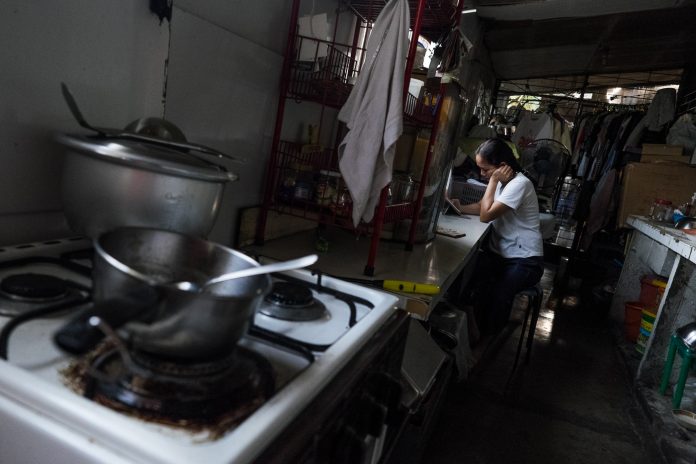Those working from home, whose number has greatly increased due to the spread of the COVID-19 pandemic, need better protection, said the International Labor Organization in a report released this week.
The organization said that because homeworking occurs in the private sphere, it is often “invisible,” adding that in low- and middle-income countries, almost all home-based workers work informally.
They are usually worse off than those who work outside the home, even in higher-skilled professions, said the report.
Homeworkers earn on average 13 percent less in the United Kingdom; 22 percent less in the United States of America; 25 percent less in South Africa, and about 50 percent in Argentina, India and Mexico.
Homeworkers also face greater safety and health risks and have less access to training than non-home-based workers, which can affect their career prospects.
The report, “Working from home. From invisibility to decent work,” also shows that homeworkers do not have the same level of social protection as other workers. They are also less likely to be part of a trade union or to be covered by a collective bargaining agreement.
According to ILO estimates, prior to the COVID-19 crisis, there were approximately 260 million home-based workers worldwide, representing 7.9 percent of global employment; 56 percent of them (147 million) were women.
They include teleworkers who work remotely on a continual basis, and a vast number of workers who are involved in the production of goods that cannot be automated, such as embroidery, handicrafts, electronic assembly.
A third category, digital platform workers, provide services, such as processing insurance claims, copy-editing, or data annotation for the training of artificial intelligence systems.
In the first months of the COVID-19 pandemic in 2020, an estimated one-in-five workers found themselves working from home. Data for the whole of 2020, once it is available, is expected to show a substantial increase on the previous year.
The growth of homeworking is likely to continue in the coming years, the report said, bringing renewed urgency to the need to address the issues facing homeworkers and their employers.
Homeworking is often poorly regulated and compliance with existing laws remains a challenge. In many instances, homeworkers are classified as independent contractors and therefore excluded from the scope of labour legislation.
“Many countries around the world have legislation, sometimes complemented by collective agreements, that addresses various decent work deficits associated with homework,” said Janine Berg, ILO senior economist and one of the report’s authors.
Only 10 ILO Member States, however, have ratified Convention No. 177 that promotes equality of treatment between homeworkers and other wage earners, and few have a comprehensive policy on homework.









